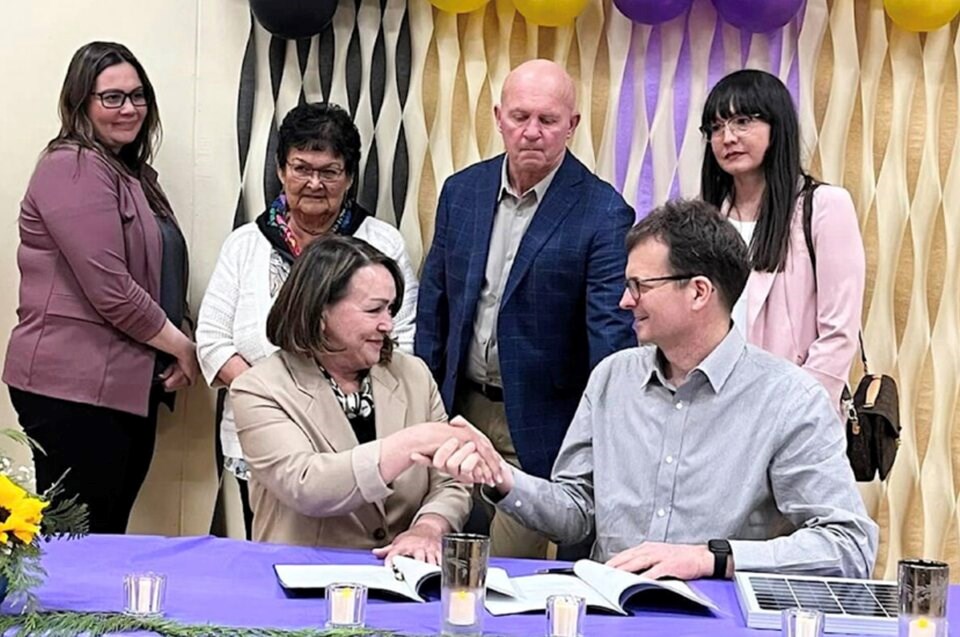A First Nation in central B.C. has received more than $15.8 million in government money to build what’s expected to be the largest off-grid solar energy project ever built in Canada.
Near the shores of Anahim Lake, the solar array will help the Ulkatcho First Nation avoid purchasing and burning 1.1 million litres of diesel a year, or almost two-thirds of the fuel it currently relies on to provide all of its energy needs, according to a release from the Minister of Housing, Infrastructure and Communities. BC Hydro says the project is expected to generate 3.8 megawatts, enough to power approximately 350 homes.
“This solar energy facility will not only reduce the community’s greenhouse gas emissions, but will also bring about reduced expenses due to the shutting down of diesel generators,” said federal Minister of Housing, Infrastructure and Communities Sean Fraser in a statement.
The nation near Anahim Lake is one of 358 remote communities across Canada. Of those, 201 still rely on diesel to generate electricity, while more than 70 have community energy plans to build something more sustainable, according to Natural Resources Canada’s Remote Communities Energy Database.
By 2019, those communities — mostly in B.C., Ontario, Quebec, Labrador, and Canada’s three territories — transported, stored and burned the equivalent of 36 Olympic-size swimming pools of diesel every year, according to the energy think tank the Pembina Institute.
The new solar power plant will be built on the south end of Anahim Lake. BC Hydro will buy energy from the facility through a Community Electricity Purchase Agreement. Once in the hands of the utility, the energy will pass through a micro-grid and battery energy storage system to serve the community, the ministry said.
In a statement, Ulkatcho Chief Lynda Price said the new agreement “marks a momentous occasion” for the First Nation, its energy sovereignty and clean power.
BC Hydro president and CEO Chris O’Riley said “this partnership lays the foundation for Indigenous participation in B.C.’s clean-energy sector.”
B.C.'s Minister of Environment and Climate Change Strategy George Heyman, meanwhile, said the agreement was an “important part of reconciliation” with the province’s Indigenous people.
“Switching from diesel fuel to renewable energy to heat your home or power your lights is a challenge if you live in a remote or isolated community,” he said.
Most of the money — nearly $11.9 million — is coming through a federal government green infrastructure program. The B.C. government is contributing more than $2.3 million to the project, while the Ulkatcho First Nation is investing $818,300.


